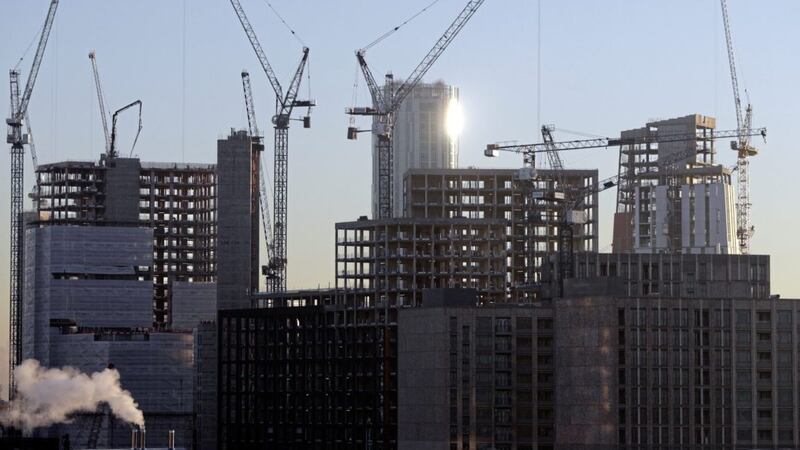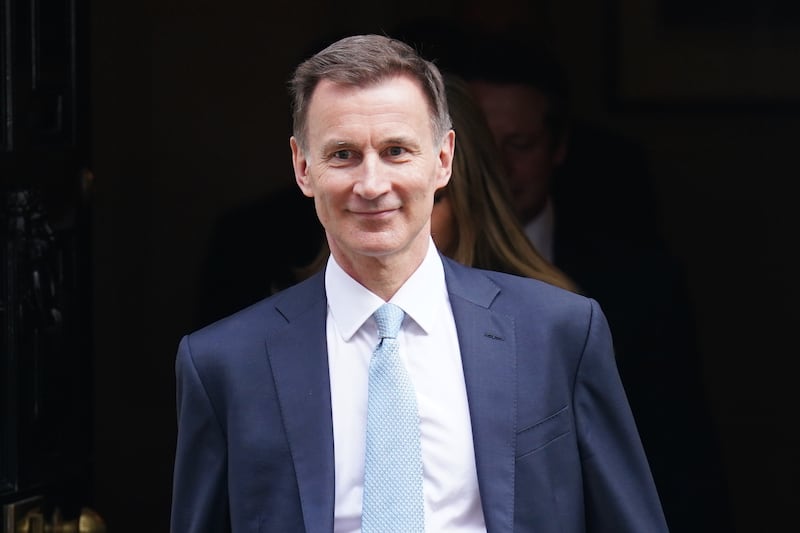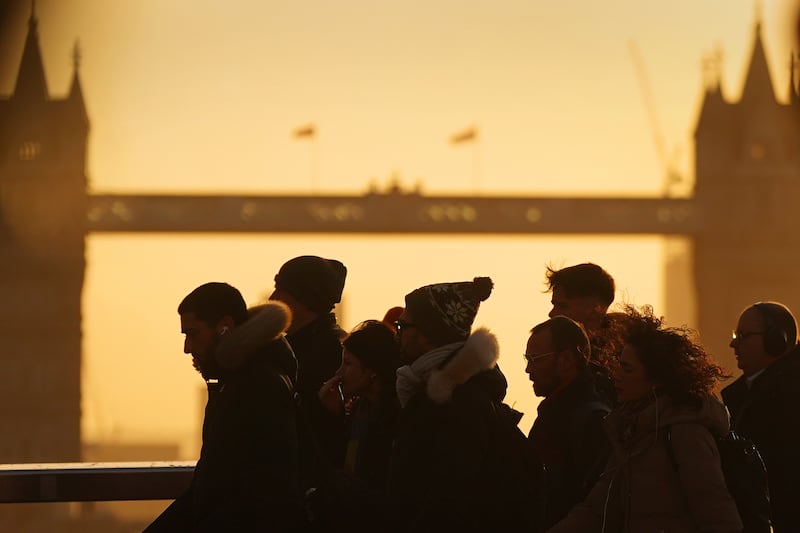THE UK economy grew at a healthy rate over the summer months, helped in part by the bout of warm weather.
The Office for National Statistics (ONS) said gross domestic product (GDP) growth was 0.7 per cent between June and August.
Economists had been expecting a 0.6 per cent rise for the three months to August.
It was the same rate of growth logged in the three months to July after an upward revision of 0.1 per cent for the period, thanks to revisions in the services sector.
Growth rates for June and July were both revised higher by 0.1 per cent to 0.2 per cent and 0.4 per cent respectively, helping make up for flat growth in August that fell short of consensus estimates for a 0.1 per cent rise.
The statistics agency said the summer's heatwave provided a welcome boost to the economy, after it suffered under unusually cold weather brought in by the Beast from the East earlier in the year.
"The growth continued to pick up from the negative growth in April 2018, with the most recent period rebounding from this weak start to the year and being boosted by the warmer than usual weather in the summer months," the ONS said.
The economy was also helped by a 2.9 per cent jump in construction activity as well as a 0.7 per cent rise in production in the three months to August.
The UK's powerhouse services sector grew by 0.5 per cent between June and August, which the ONS said resulted in a "large positive contribution to headline GDP growth.
But the statistics agency said the rate of growth is still failing to match long-term trends.
ONS head of GDP Rob Kent-Smith said: "The economy continued to rebound strongly after a weak spring, with retail, food and drink production and house-building all performing particularly well during the hot summer months.
"However, long-term growth continues to lag behind its historical trend."
On a month-on-month basis, construction contracted 0.7 per cent in August, while services failed to log monthly growth, coming in flat at 0 per cent.
Production grew just 0.2 per cent, having been held back by a 0.2 per cent contraction in manufacturing activity.
Agriculture activity, meanwhile, fell by 0.2 per cent.
Ben Brettell, a senior economist at Hargreaves Lansdown, said: "The economic rally we saw over the summer was stronger than previously thought, data from the ONS showed."
"In particular retail sales and house-building benefited from the unusually hot weather," he explained.
"But, more recent news was somewhat gloomier - month-on-month output was flat for August, showing the economy could be losing momentum as we move into the autumn.
"Worryingly the dominant service sector has experienced a significant slowdown in growth over the past year or so, with an emerging trend for growth of around 1.5 per cent year on year."
He noted the ONS update comes on the heels of an International Monetary Fund (IMF) forecast for UK growth, which is now expected to be 1.1 per cent this year, down from a previous estimate of 1.3 per cent.
The IMF has also warned that UK public finances are among the weakest in the world.
"Overall, though, the picture is still one of muddling through," Mr Brettell said.
"Strong growth over the summer is likely to reassure policymakers that the recent interest rate rise was warranted, but they'll be hoping to see the momentum maintained as Brexit approaches.
"Markets are still pencilling in a further rise around the middle of next year - though clearly a disorderly Brexit would pose a significant risk to that outlook."







